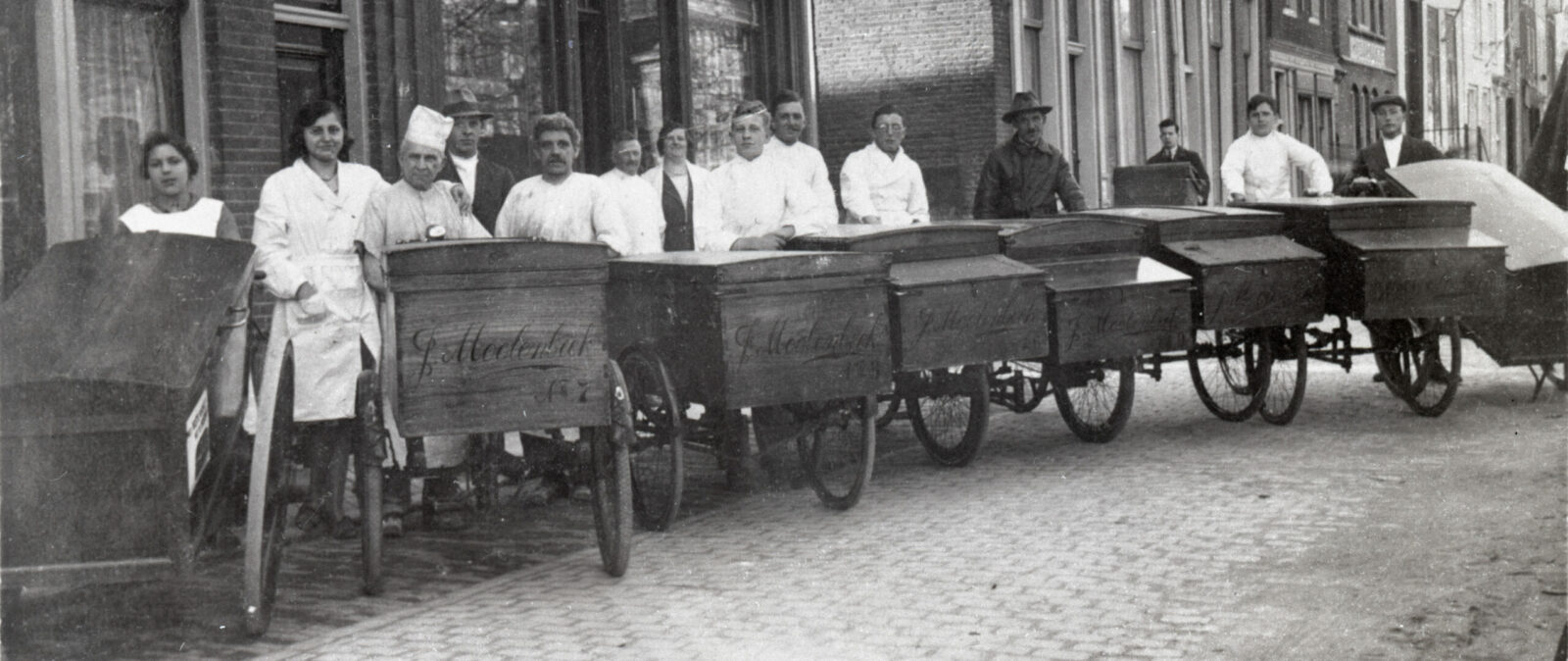Agenda
PhD Defence Posthumus alumnus Dennis De Vriese
On 10 March 2025, Posthumus alumnus Dennis De Vriese successfully defended the PhD thesis ‘Selling New Ways of Selling. Legitimising Regulation and Deregulation in the Brussels Meat Market (1770-1860)’ at the Vrije Universiteit Brussel. Supervisor was Professor Wouter Rykbosch.
From the late eighteenth century, the rise of free-trade thinking and economic liberalism, alongside the political influence of the French Revolution, led to the dismantling of early modern economic regulatory frameworks across the Western urban world. While scholarship has examined ideological shifts among political elites and the immediate effects of deregulation, less is known about how these principles were implemented in everyday politics. In particular, little research has explored how radical transformations in market organization were legitimized and made acceptable to those directly affected, as such changes disrupted long-standing traditions, laws, and practices. This dissertation examines these dynamics through the case of the fresh meat trade in Brussels, a sector that played a crucial role in the broader liberalization of food markets.
Meat, second only to bread in dietary significance, was considered suitable for free-market experiments. However, concerns over health risks led to a paradoxical situation in which slaughter was increasingly regulated while retail was liberalized. In Brussels, this process unfolded through successive waves of regulation and deregulation, as free-market ideologies clashed with a deeply rooted corporative regulatory tradition. This dissertation explores the rhetorical strategies employed by both regulators and butchers to shape, resist, or legitimize market reforms. It examines how market organization was framed within shared conventions to persuade political peers, sway lawmakers, and gain public legitimacy.
The findings challenge the assumption that deregulation led to a simple transfer of responsibility from government to consumers. Instead, both supporters and opponents of regulation framed their arguments in terms of consumer interest. However, within this shared rhetoric, actors had considerable leeway in defining key concepts, particularly competition, which became a central point of contention. Butchers and regulators used competing interpretations of how competition functioned, how it should be promoted, and its effects on market stability to justify their positions—sometimes invoking the same principles to support opposing arguments. This flexibility allowed butchers to resist or advocate for reforms while aligning their claims with broader liberal economic ideals.
Despite the increasing dominance of free-market ideology, municipal authorities continued to exert indirect influence over the meat trade. They used tools such as tax policies, fines for tax evasion, and cattle competitions to shape market behavior while maintaining the appearance of market liberalism. These interventions were justified through the same discourse that had originally supported retail liberalization—ensuring cheap and safe meat for consumers. This rhetorical continuity allowed policymakers to present regulatory shifts as consistent with longstanding objectives, even as their approach fluctuated between market control and liberalization.
Butchers, in turn, adapted to deregulation by expanding their retail presence across the city, aligning their practices with consumer demand and intensifying price competition. Their spatial distribution after the 1840s reflected principles of central place theory, reinforcing the notion that liberalized markets naturally benefited consumers. Dennis’ study reveals how a semi-flexible discourse—rooted in enduring economic goals but adaptable in its application—played a functional role in legitimizing regulatory transformation. By embedding new practices within familiar rhetorical frameworks, this discourse facilitated the transition to modern market structures while maintaining continuity with past traditions.
The N.W. Posthumus Institute congratulates Dennis with this achievement!


